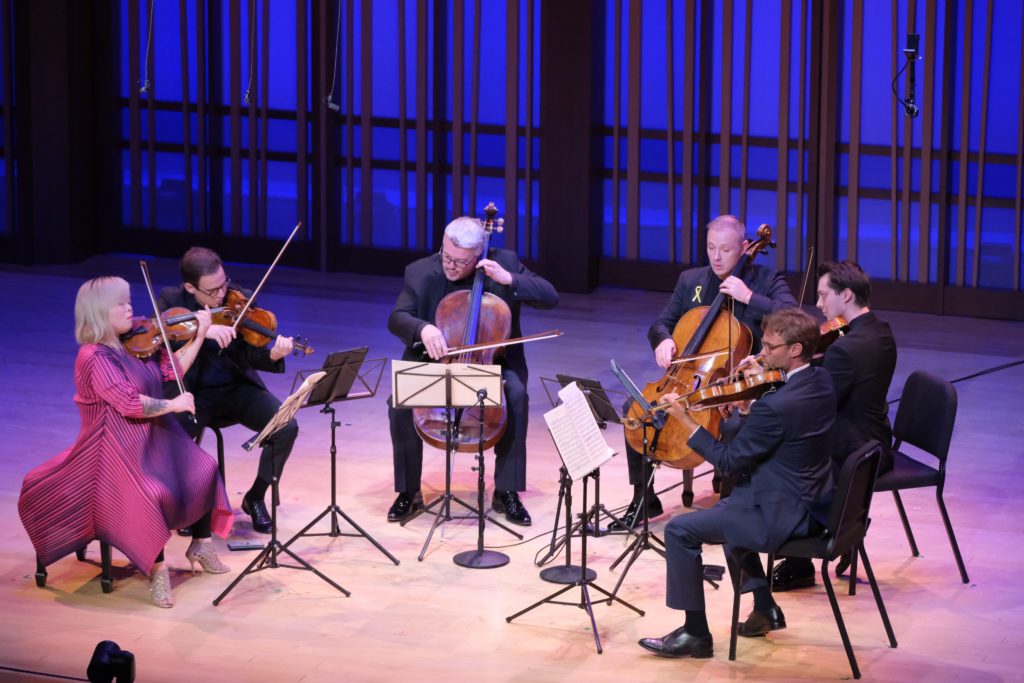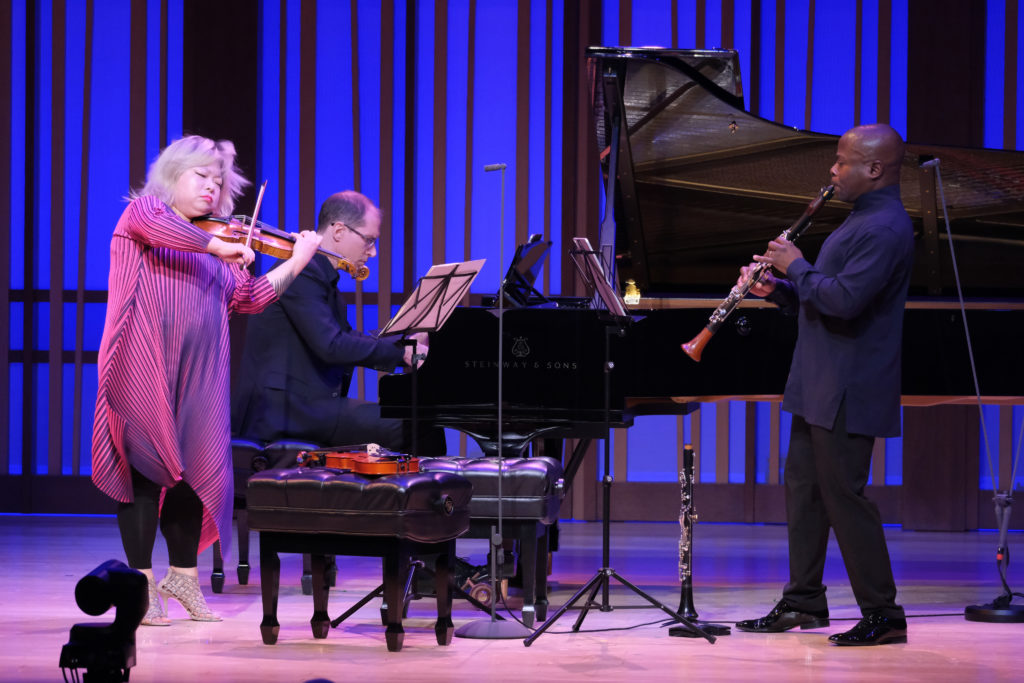Soaring Clarinet Flights and String Reveries at La Jolla SummerFest
Wednesday’s La Jolla SummerFest programming proved too eclectic to have a common theme, but its continuity came from the evening’s virtuoso performers. Clarinetist Anthony McGill was featured in Béla Bartók’s Contrasts for Violin, Clarinet and Piano as well as in Michi Wiancko’s Lullaby for the Transient. Violinist Yura Lee was featured in the Bartók Contrasts and played first violin in Johannes Brahms’ String Sextet in B-flat major, No. 1. Violist Jonathan Vinocour and cellist Cyril Zlotnikov performed in both the Wiancko Lullaby and the Brahms String Sextet.
In 1938 two of America’s most celebrated performers, clarinetist Benny Goodman and violinist Joseph Szigeti, commissioned a virtuoso showpiece from Béla Bartók: Contrasts for Violin, Clarinet, and Piano. This amazing three-movement work displays all the flashy, complex figurations you might find in a Fritz Kreisler violin encore, but infused with probing musical substance.
McGill performed Contrasts for La Jolla SummerFest 2018 with violinist Paul Huang and pianist Shai Wosner on one of Cho-Liang Lin’s final season offerings, and it was thrilling to hear him again navigate this daunting project with such command and finesse. Wednesday he was joined by violinist Yura Lee, who gracefully equalled his depth and technical prowess at every turn, and by pianist Gillles Vonsattel, who delivered everything the piano part required. Bartók himself played the piano part in the 1938 première and on first recording, but the composer was careful not to let a brassy piano part get in the way of the intended virtuosos.
Aside from the subtle, very quiet ostinatos that open Wiancko’s Lullaby for the Transient, there are few musical moments in her piece that suggest typical moods implied by the term “lullaby.” Johannes Brahms’ saccharine “Lullaby” this is not. The clarinet’s first entrance is a high-pitched screech over churning string parts, and Wiancko keeps the clarinet wailing in its piercing upper register. Later, when the clarinet gurgles in its more mellow middle register, the strings engage in fierce contrapuntal battles. Kudos to violinists Simone Porter and SooBeen Lee for their rhapsodic incantations, especially SooBeen Lee’s striking whirring cadenza that brings Wiancko’s Lullaby to its conclusion. McGill, Vinocour, and Zlotnikov also brought sophisticated technical prowess to this hardy opus from 2018.
Perhaps Wiancko’s Lullaby for the Transient is simply a case of reverse psychology. Instead of gently coaxing the listener into peaceful slumber, Wiancko so exhausts the listener, that upon conclusion of her lullaby, the emotionally depleted listener is ready for the Sandman’s ministrations.

(l. to r.) Yura Lee, Jack Liebeck, Paul Watkins, Kyril Zlotnikov, Brian Isaacs & Jonathan Vinocour [Photo (c.) Ken Jacques]
Frequently left counting rests in earlier movements, violinists Yura Lee and Jack Liebeck led the spritely thematic chase that defined the sextet’s short, bouncy “Scherzo.” Brahms’ gentle rondo theme–given exquisite shape by cellist Watkins–opens the final movement, “Poco allegretto e grazioso,”, but it turns out to be a feint for a movement that soon expands into unabashed symphonic intentions and scope. The SummerFest strings–I believe second violist Brian Isaacs is the only player I have not yet mentioned–filled the Conrad with their ardent, generous interpretation of Brahms’ majestic conclusion.
This concert was presented by the La Jolla Music Society as part of SummerFest 2024 at La Jolla’s Conrad Prebys Performing Arts Center on Wednesday, August 21, 2024.

Ken Herman, a classically trained pianist and organist, has covered music for the San Diego Union, the Los Angeles Times’ San Diego Edition, and for sandiego.com. He has won numerous awards, including first place for Live Performance and Opera Reviews in the 2017, the 2018, and the 2019 Excellence in Journalism Awards competition held by the San Diego Press Club. A Chicago native, he came to San Diego to pursue a graduate degree and stayed.Read more…

